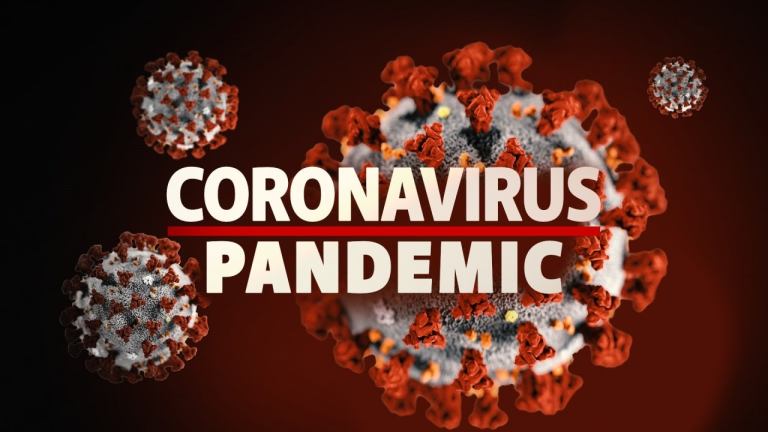There is growing concern over the aftereffect of Coronavirus Disease (COVID-19) on survivors; it is feared that survivors still suffer fatigue, racing hearts and breathlessness months after testing negative for the disease.
Studies are reporting a range of neurological and neurophysiological complications, including confusion, stroke, heart damage, life-threatening blood clots in the arteries of the legs, inflammation of the brain and spinal cord, among others.
However, hopes that COVID-19 survivors have long-lasting immunity are growing, as scientists now believe crucial disease-fighting stay in the body for many years.
Regarding life after surviving COVID-19, Director General of Nigeria Centre for Disease Control (NCDC), Dr. Chikwe Ihekweazu, a consultant epidemiologist, told reporters: “There have been various accounts from people about their experience post-COVID-19. Many have fully recovered, while others still experience symptoms, such as fatigue. Like many infectious diseases, there are risks of health challenges after recovery, but most times, these risks are dependent on individual characteristics, such as age, underlying illness, etc.
“It is very important that people, who have recovered from infectious diseases, including COVID-19, should be deliberate about protecting their health by eating healthy, engaging in moderate physical activity, avoiding stressors, such as smoking, etc.
“We must always remember that we are only six months into this disease and to understand the long-term impact requires time.”
On challenges survivors faced, Ihekweazu said: “Scientifically, it may still be too early to define challenges faced by those that have recovered. In Nigeria, we are working very hard with the treatment centres and the Department of Hospital Services of the Federal Ministry of Health to document the experience of patients in care and aftercare.
“We have read several reports of both patients and those who have recovered facing stigma after returning to the community. At the moment, there is no evidence to show that people who have recovered from COVID-19 pose a risk to members of society. Like many other infectious diseases, COVID-19 can cause a psychological strain to people affected.
“Therefore, we urge Nigerians to avoid stigmatisation of people who have COVID-19 and those who have recovered.”
Asked if survivors could live normal lives again, he explained: “At the moment, our understanding of this disease is still incomplete, particularly regarding its long-term outcomes. However, we know that many people, who have recovered, have shared their experience after returning to their livelihood, hobbies and other activities. To understand the long-term impact requires time.”
On what could be done to address stigmatisation of survivors, the NCDC boss said: “At the beginning of the Human Immuno-deficiency Virus (HIV) pandemic years ago, there was a lot of stigmatisation of patients across the world. The evolution of that stigmatisation to increasing acceptance is an important example for all of us, as we respond to a pandemic caused by a ‘new’ virus. At NCDC, we are working with other agencies, such as the National Orientation Agency (NOA), to ensure that Nigerians are aware and fully understand the risks.
“There is no evidence that patients who have recovered can transmit the virus. So, while protecting ourselves by wearing masks, maintaining physical distance and other measures, we should not stigmatise patients and those who have recovered.
“Importantly, this fight against stigmatisation is not with the government alone; civil society, religious and traditional leaders, the media, as well as influential individuals contributed strongly to HIV campaigns. We invite these groups to add their voices in the fight against COVID-19 stigmatisation.”
Meanwhile, three coronavirus survivors in their 20s have revealed how they all still suffer persistent fatigue, breathlessness and heart problems, months after they were first diagnosed with the disease.
In an eye-opening account published by DailyMail UK that prove COVID-19 is not just an illness that goes quietly but could cause lasting damage, a 27-year-old woman who fought off the disease told how it constantly feels like there is a “slab of concrete on my chest.”
Another 21-year-old victim admitted she feels “like a fraud,” because her General Practitioner (GP) was baffled by her persistent shortness of breath, even when she sits still.
A third survivor, who believed he was struck down in January, is frustrated because there is not much he could do to tackle his heart rate, which has mysteriously sped up since his battle with suspected COVID-19.
All the victims advised the public to move away from the notion that, “if you are not dead, you are fine,” revealing their lives had been turned upside down by the virus, despite being fit and healthy.
Most COVID-19 patients would recover within a fortnight, suffering a fever, cough and losing a sense of smell or taste for several days. However, the evidence is beginning to emerge that the tell-tale symptoms of the virus could persist for weeks on end in “long haulers,” the term for patients plagued by lasting complications.
Affected patients have told how they struggled to complete everyday tasks, such as emptying the dishwasher, without feeling extremely tired and being left with a racing heart.
British scientists have already launched an investigation into the long-term impacts of COVID-19 in search of answers to thousands of people’s problems, which has been referred to as “this generation’s polio.”
COVID-19 is described as a short-term illness caused by infection with the novel Severe Acute Respiratory Syndrome Coronavirus Type 2 (SARS-CoV-2) coronavirus, with public health officials believing that people would recover within two weeks or so.
However, it becomes increasingly clear that this is not the case for everyone and the two-week period is only the “acute illness” phase.
Data from the COVID Symptom Study app, King’s College in London and health company, Zoe, suggest one in 10 people might still have symptoms after three weeks and some might suffer for months.
For those with more severe disease, Italian researchers that tracked 143 people, who had been hospitalised with the disease, found almost 90 per cent still had symptoms, including fatigue, two months after first falling unwell. The most common complaints were fatigue, shortness of breath and joint pain, all of which were reported during their battle with the illness.
Another study in Italy showed one in 10 people, who lose their sense of taste and smell with coronavirus, now recognised as a key sign of the infection, might not get it back within a month.
There are hopes that COVID-19 survivors have long-lasting immunity are growing, as scientists now believe crucial disease-fighting stay in the body for many years.
Leading immunologists said T cells, a type of white blood cell in the immune system, are produced by almost everyone infected with the coronavirus. Until now, most of the attention on immunity had focused on antibodies, substances made by the immune system to fight off a virus before it takes hold.
Evidence is beginning to suggest that antibodies disappear in as little as eight weeks after infection with the coronavirus, scientifically called SARS-Cov-2.
But professor of Immunology at Imperial College London, Danny Altmann, described antibodies as ‘precarious’ and “transient,” adding, however, that T-cells, which target and destroy cells already infected with the virus, are ‘durable.’
A Viral Immunologist at University College London, Prof. Mana Maini, added that there is a “good chance” T-cells are long-lasting, a finding she described as “really important and exciting.”
There have been fears that those who have fought COVID-19 would not be protected from contracting it again because of the rapid decline in antibody levels. But scientists admitted they still don’t know how long immunity lasts, given that the SARS-CoV-2 is still shrouded in mystery, having only existed since December last year.
Two new studies have suggested that coronavirus might leave the heart with lasting, dangerous damage.
It has become clear that the respiratory virus also attacks the cardiovascular system, as well as numerous other organs, including the kidneys and brain, but the new studies shed light on worrying damage to the heart itself.
It is not yet clear how long the damage might last or how it might, in practice, increase survivors’ risks of heart attack, stroke or other life-threatening cardiovascular issues, but the studies might help explain why even previously healthy survivors are left weak and fatigued for weeks or months.






